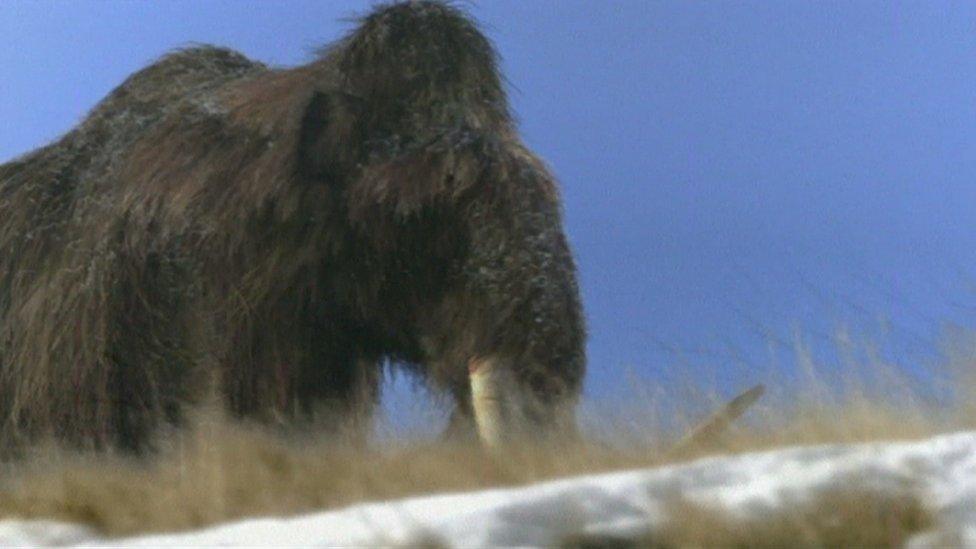Ipswich mammoth teeth DNA to be sampled
- Published
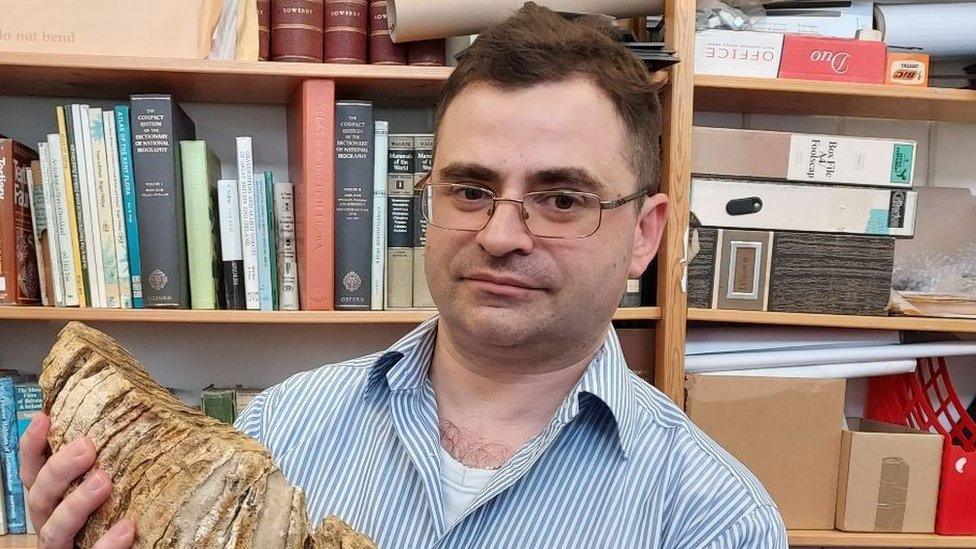
Dr Simon Jackson with a mammoth tooth that will be sampled by scientists searching for DNA
Mammoth teeth dating from 200,000 years ago are to be tested in the hope DNA samples can be found to reveal more about the creatures.
Researchers from the Natural History Museum and Stockholm University plan to sample teeth from Ipswich Museum.
Dr Simon Jackson, from the Suffolk museum, said the oldest DNA samples found in Britain were from teeth dating from about 50,000 years ago.
Finding older DNA in the UK could have a "huge amount of potential", he said.
"We are looking to see if DNA has been preserved in these mammoth teeth," Dr Jackson told the Local Democracy Reporting Service.
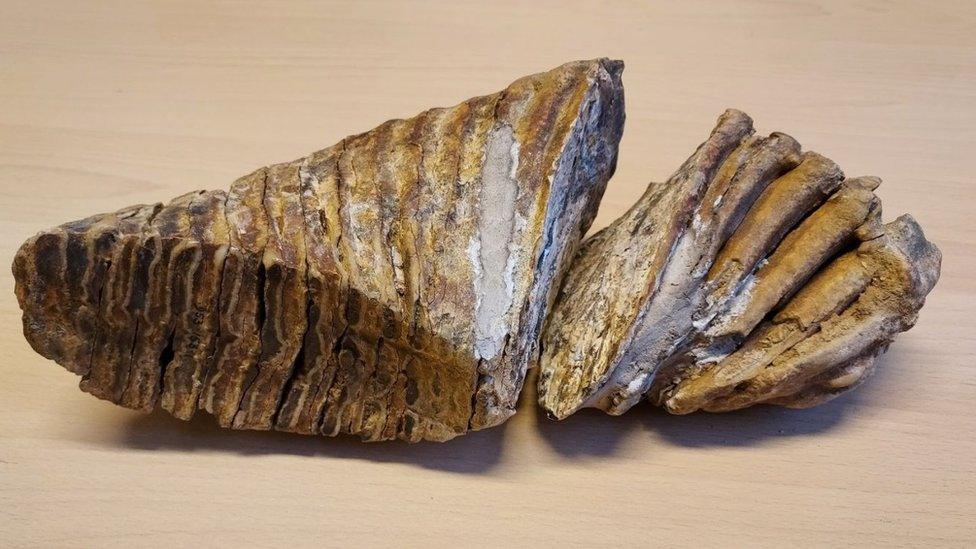
Mammoth teeth could hold more information about the creatures
Dr Jackon said they were trying to uncover the "evolutionary history of the mammoth", in particular the steppe mammoth which was a larger species that lived before the woolly mammoth.
"It's worth emphasising just how significant it would be finding DNA in these mammoth teeth, because the oldest ones we have in Britain from mammoth teeth are some 50,000 years, and nothing of 200,000 years ago has been found in mammoth teeth in Europe," Dr Jackson said.
Ipswich's collection comprises of finds from local sites across Suffolk, including the Stoke and Maidenhall areas of Ipswich, Brundon, Stutton and Harkstead.
They come from the interglacial period between ice ages where the environment was wetter and warmer.
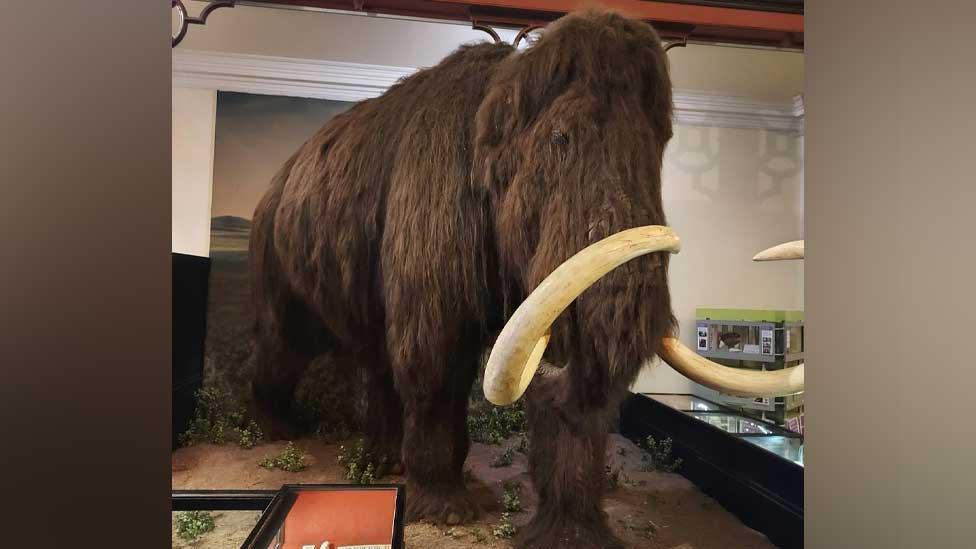
Eight mammoth teeth at Ipswich Museum are to be sampled by scientists
Older DNA has been found in mammoth teeth - up to about one million years old - but that was found in north-east Siberia where permafrost preserved it.
Finding DNA in what is called temperate conditions - like the ones in Ipswich's collection - could be ground-breaking for future research, Dr Jackson said.
"On an international scale it will be the oldest mammoth DNA found of this age across Europe and in Britain," he added.
"It's one of the most exciting projects I have worked on, it really has international significance and a huge amount of potential if we do find it."
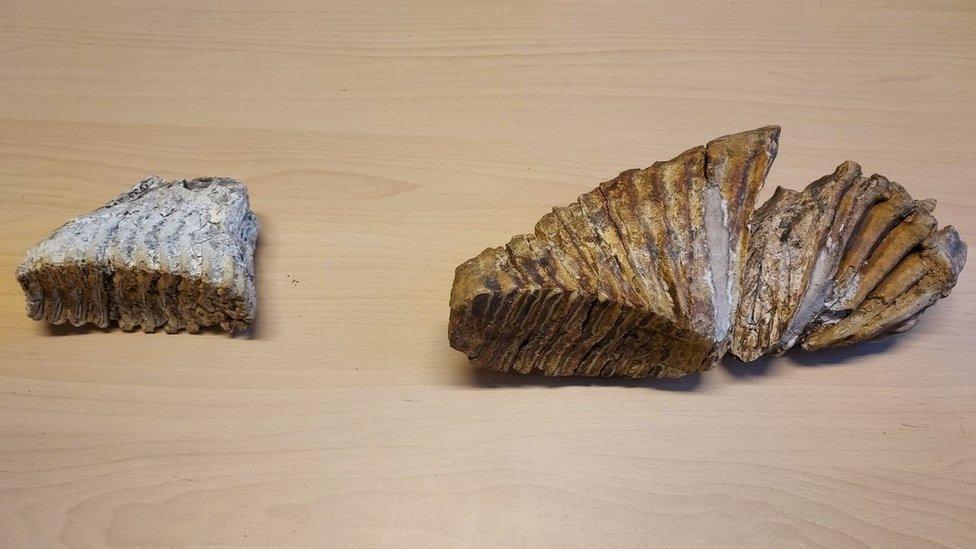
Researchers hope to find DNA in the teeth to help uncover "evolutionary history of the mammoth"

Find BBC News: East of England on Facebook, external, Instagram, external and Twitter, external. If you have a story suggestion email eastofenglandnews@bbc.co.uk, external
- Published9 May 2022
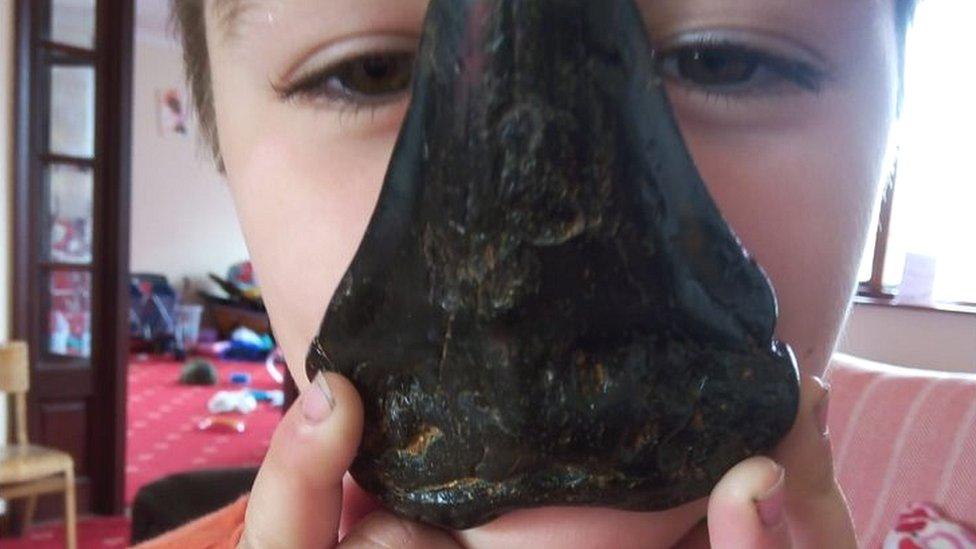
- Published3 February 2022
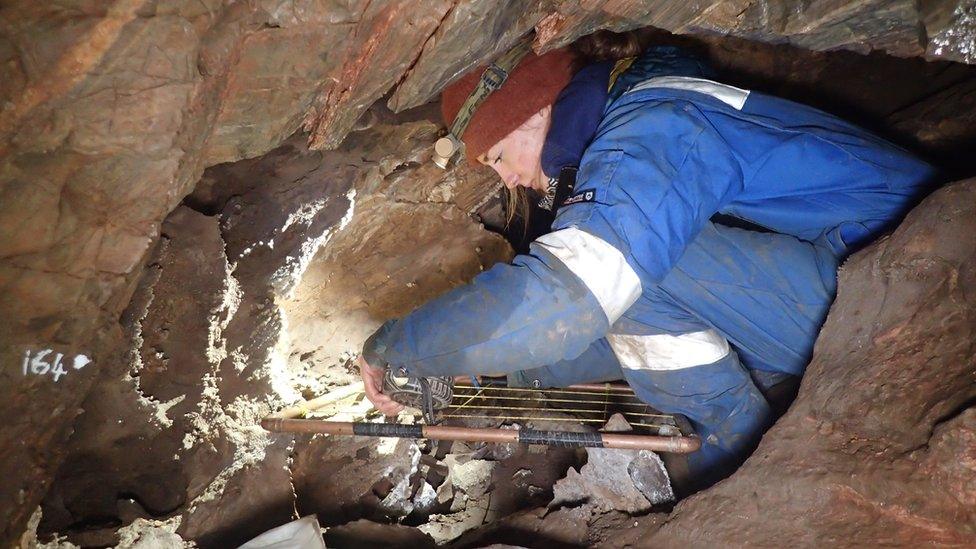
- Published4 January 2019
